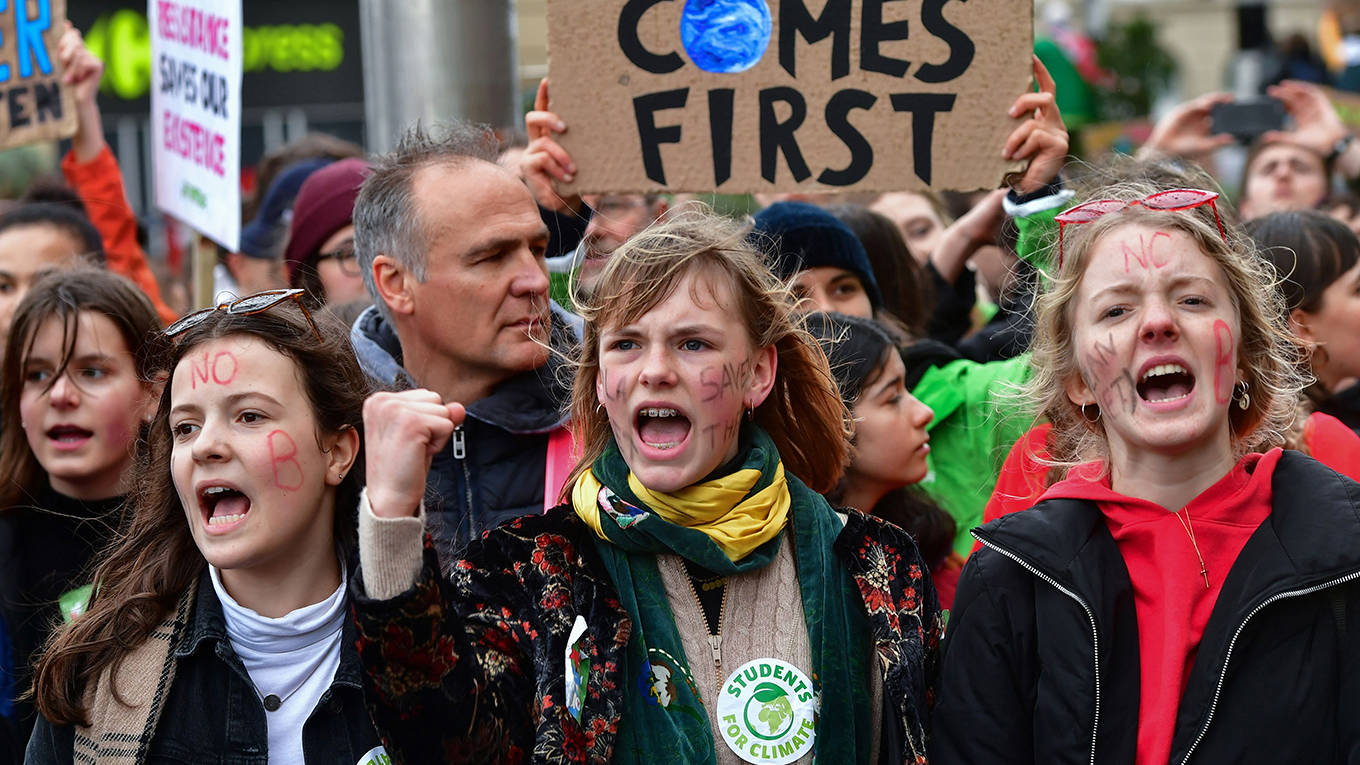/arc-anglerfish-tgam-prod-tgam.s3.amazonaws.com/public/PMCZG3N7YVBRNPNMS2OCFC7AUM.jpg)
The reality is that Alberta especially has the capacity to generate revenue, but we choose not to, and then call it the Alberta advantage. AMBER BRACKEN/THE CANADIAN PRESS
Monday isn’t the first time Alberta has elected mostly Conservative MPs. What does seem different, though, is the anger. Premier Jason Kenney described the idea of a Liberal minority government as a “Frankenstein” scenario, in which non-Conservatives pose an existential threat to Alberta.
We Albertans should ask ourselves how far we are prepared to let our provincial government push this polarized partisan narrative in our name. Other Canadians, too, should ask how much they’re prepared to accommodate this belligerent approach.
A few things work together to produce such a charged environment. While relatively few Albertans work directly in oil and gas (6.1 per cent in 2017), the idea that Alberta’s prosperity is tied to oil and gas is pervasive. My own research shows that about 70 per cent of Albertans report that oil and gas is very important for Alberta’s prosperity, compared with only about 24 per cent when that prosperity connection is made to their personal finances. This may be why it is so easy for some to conflate “energy” almost exclusively with oil and gas in Alberta.
So why are Albertans so angry? Certainly, some simply strongly connect only oil and gas to the province’s prosperity. While many Albertans may not say it explicitly, there’s appetite for conversations about energy transition and the environment; politicians across all parties and levels of government ignore this at their peril.
But another factor – partisanship – helps explain the anger. If partisanship is seen as a social identity, then it is ripe for polarization. Polarized partisans see competition between other parties as zero-sum, and then these partisans feel threatened, they will fight to maintain the position and status of their group. Importantly, polarized partisans also feel emotions on behalf of their party, so they are more euphoric when they win, and more angered when they lose.
To this, another factor must be considered. While many Albertans are not polarized partisans, they all feel at least a degree of Western alienation and have long expressed aggravation at the idea that our resources are used to enrich elites in Central Canada. This explains why the bellicose posturing of both Alberta’s Premier Kenney and Saskatchewan’s Premier Scott Moe after Monday’s election references equalization and getting a “fair deal” from the rest of Canada. Again, while this sentiment is not new, it helps reinforce this “us versus them” narrative made explosive by partisan polarization.
This is not the first time that Canadians will be confronted with a region or province that is not satisfied; what is worth considering now is what actions the federal government should take that would satisfy discontented folks in Alberta and Saskatchewan that would also be seen as acceptable, or even positive, by other Canadians. While I doubt polarized partisans will ever be satisfied, I also doubt we can have this conversation without addressing equalization.
The difficulty is that few Canadians can accurately report much, if anything, about equalization. In speaking to Albertans, I’ve found that many agree with the fundamental principles of the program: Canadians should be able to access comparable levels of services regardless of where they live, and provinces should have autonomy in determining how they provide those services. Where Albertans are easily led astray, though, is about what equalization is meant to, well, equalize. It’s about fiscal capacity – that is, a province’s ability to generate revenue.
The reality is that Alberta especially has the capacity to generate revenue, but we choose not to, and then call it the Alberta advantage. It’s estimated that if Alberta imposed taxes at the same level as British Columbia, where the economy has consistently outperformed Alberta’s in recent years, we would generate $11.2-billion a year more in revenue. But there appears to be little appetite to reconsider this. This leaves Alberta open to criticism, justifiably, for asking the federal government to help pay its bills when it’s unwilling to put in the same effort as other provinces to raise revenue.
Given that it’s already too easy to blame the feds for things that are exclusively the choice of Alberta’s government (i.e. our systematic under-use of our own fiscal capacity), I anticipate that, sometime soon, blame for harsh budget cuts meted out by Mr. Kenney’s government will be presented as Justin Trudeau’s fault. This strategy is certainly as partisanly effective as it is devoid of principled and ethical leadership.
Taken together, this is why a national conversation about the politics of equalization and the Canadian federation, while arguably needed, likely won’t get very far. It’s hard to escape the impression that, at least for some Albertans, the anger is the goal. SOURCE
RELATED:


/https://www.thestar.com/content/dam/thestar/politics/provincial/2019/11/28/rickfords-climbdown-on-climate-change-fuels-skepticism-from-critics/greg_rickford.jpg)
 Emmanuel Dunand/AFP via Getty Images
Emmanuel Dunand/AFP via Getty Images
/https://www.thestar.com/content/dam/thestar/opinion/star-columnists/2019/11/28/canada-should-enforce-its-own-labour-standards/mexico_trade.jpg)



